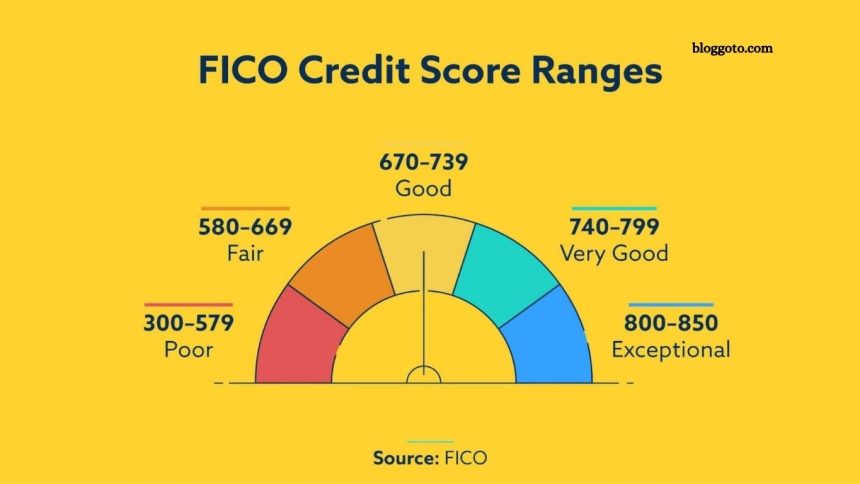Buy Now, Pay Later (BNPL) services have seen explosive growth in recent years, becoming a mainstream financing option for millions of consumers. Now, in a major shift, FICO—the most widely used credit scoring company in the U.S.—is set to include BNPL loans in its credit scoring models. This change could significantly impact how consumers build and manage their credit profiles.
What Is Changing?
Starting this fall, FICO will roll out two new credit scores: FICO Score 10 BNPL and FICO Score 10 T BNPL. These updated scores will incorporate data from BNPL transactions—something that has previously been excluded from most traditional credit models.
This is a historic move. It’s the first time FICO has created scores specifically designed to capture a new type of credit product. These new scores will be provided alongside traditional FICO Score 10 versions, giving lenders a more complete picture of an individual’s credit behavior, especially those whose only credit history involves BNPL products.
Read More: Amazon Whole Foods Chief Slams ‘Ridiculous’ Bureaucracy for Wasting Time, Leak Reveals
Why BNPL Loans Matter
BNPL services like Affirm, Klarna, Afterpay, and PayPal Pay in 4 allow consumers to split payments into smaller installments, often interest-free. These services have become increasingly popular, especially among younger and credit-invisible consumers.
According to Emarketer, BNPL transactions in the U.S. are projected to hit $108 billion in 2025, up from $94 billion in 2024. Capital One Shopping Research reports that 86.5 million Americans used BNPL services in 2024, with the average loan being $135.
Given the volume of transactions and consumer engagement, FICO recognized the importance of factoring BNPL activity into its credit models.
What Does This Mean for Consumers?
The inclusion of BNPL in credit scores could be both an opportunity and a risk:
- Positive impact: Timely payments on BNPL loans can help consumers with limited or no credit history begin to build a credit score.
- Negative impact: Missed payments or overuse of BNPL services could harm your credit profile, especially if the loans are reported to bureaus.
As more BNPL providers begin reporting data to credit bureaus, these activities will increasingly influence creditworthiness. Affirm, for example, started reporting all installment loans to Experian and TransUnion in April. Klarna shares data only for longer-term loans but not for short-term “Pay in 4” options.
Lenders Get More Insight
By incorporating BNPL into credit scoring, lenders will have a more comprehensive view of consumer behavior. This is especially useful in evaluating thin-credit-file individuals or those who don’t use traditional credit products like credit cards or auto loans.
“Buy Now, Pay Later loans are playing an increasingly important role in consumers’ financial lives,” said Julie May, Vice President and General Manager of B2B Scores at FICO. “We’re enabling lenders to more accurately evaluate credit readiness.”
How It Works: FICO Score 10 BNPL vs. FICO Score 10 T BNPL
The two new scores function similarly to traditional FICO scores, which range from 300 to 850, but with added BNPL data.
- FICO Score 10 BNPL: Focuses on short-term BNPL loans, such as Pay in 4.
- FICO Score 10 T BNPL: Offers a broader, trended view of payment behavior over time, including long-term installment BNPL loans.
Both scores will be provided to lenders at no additional cost when they use the FICO Score 10 Suite.
Impact on the BNPL Industry
The shift could lead to more BNPL providers reporting consumer behavior to credit bureaus, increasing transparency. Klarna recently reported that it had 100 million active users in Q1 2025, with 33% of its revenue growth driven by U.S. customers. Affirm’s gross merchandise volume reached $8.6 billion, a 36% increase year-over-year.
This momentum indicates that BNPL isn’t just a trend—it’s a foundational part of the consumer finance ecosystem.
Frequently Asked Questions
What is a Buy Now, Pay Later loan?
A BNPL loan allows you to purchase items and pay for them over time, usually in interest-free installments.
Will BNPL loans automatically affect my credit score?
Only if the BNPL provider reports your loan activity to credit bureaus. Not all providers currently do.
Which BNPL providers report to credit bureaus?
As of 2025, Affirm reports to Experian and TransUnion, while Klarna shares data for long-term loans only.
Can BNPL help build my credit?
Yes, if your provider reports to bureaus and you make on-time payments, it can help establish or improve your credit.
Can BNPL hurt my credit?
Yes, missed payments or taking on too many BNPL loans may negatively impact your score, especially with the new FICO models.
Will all lenders use the new FICO BNPL scores?
Not necessarily. Adoption may vary, and some lenders may continue to use traditional credit scores.
What’s the difference between FICO Score 10 and FICO Score 10 BNPL?
FICO Score 10 excludes BNPL data, while FICO Score 10 BNPL incorporates it for a more holistic credit profile.
How can I monitor my credit if I use BNPL services?
Use free credit monitoring tools, regularly check your credit reports, and ask your BNPL provider about their reporting policies.
Conclusion
FICO’s decision to include BNPL loan activity in its credit scores marks a major evolution in how creditworthiness is measured. For consumers, this presents new opportunities to build credit responsibly, but also introduces new risks.
If you use BNPL, now is the time to become more aware of how your payment habits could shape your credit future. As BNPL becomes more integrated into the traditional financial system, your credit behavior—whether it’s for a car, a home, or a $50 pair of shoes—matters more than ever.
Stay informed, make timely payments, and choose BNPL options from providers that report responsibly to credit bureaus. Doing so could give your credit score a positive edge in an increasingly digital world.











